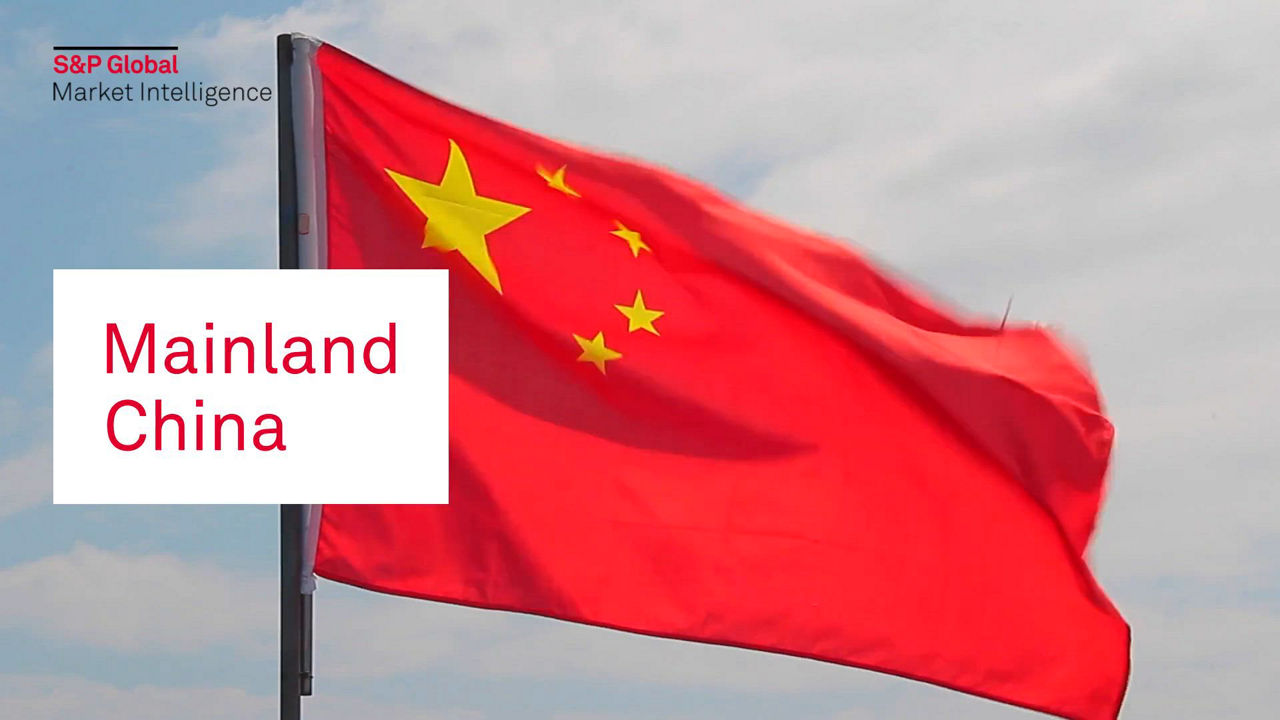Featured Topics
Featured Products
Events
S&P Global Offerings
Featured Topics
Featured Products
Events
S&P Global Offerings
Featured Topics
Featured Products
Events
S&P Global Offerings
Featured Topics
Featured Products
Events
Financial and Market intelligence
Fundamental & Alternative Datasets
Government & Defense
Professional Services
Banking & Capital Markets
Economy & Finance
Energy Transition & Sustainability
Technology & Innovation
Podcasts & Newsletters
Financial and Market intelligence
Fundamental & Alternative Datasets
Government & Defense
Professional Services
Banking & Capital Markets
Economy & Finance
Energy Transition & Sustainability
Technology & Innovation
Podcasts & Newsletters
BLOG — Feb 11, 2025
Our banking risk experts provide insight into events impacting the financial sector in emerging markets in February.


Our banking risk experts provide insight into events impacting the financial sector in emerging markets in February.
Banking sector liquidity will likely tighten in Mainland China due to interest rate cuts and increased investment confidence. The upcoming LPR cuts in China will affect both lending interest rates and also deposit interest rates. As the regulator is keen to maintain banks’ profit margin, the magnitude of the deposit interest rate and lending interest rate fall will likely be similar. This will reduce the propensity to save and, in turn, impact the liquidity buffers in China. Further negative impact on liquidity buffers will come from potential return of investors’ confidence as the Chinese authorities tackle the destocking of housing units with more attractive loan schemes to retail customers. The loan-to-deposit ratio in China is expected to rise to around 90% by the end of 2026 as a result.
New limits on bank card issuances to non-residents is expected to dampen growth of foreign liabilities amongst Kazakh banks. From Feb. 3, card issuances by Kazakh banks will have a maximum validity of 12 months for non-residents without a valid residency permit, after rules were tightened by the authorities. In turn, Market Intelligence views the move as likely to stem the inflows of Russian funds, following increases in foreign liabilities of the local banking sector since the end of 2021. The Kazakh government has previously had to loosen cash capital controls on the export of Russian ruble banknotes, given a surplus amassed by local lenders. Market Intelligence views the latest rules as likely benefitting the direct foreign exchange risk profile of local lenders, while also guarding against potentially illicit financial transactions via local banks.
Polish banks face potentially greater legal risks in 2025–26 pending European court responses on challenges of consumer credit contracts and interest rate setting. Several Polish courts have deferred to the Court of Justice of the European Union (CJEU) to clarify questions on contractual obligations of banks for WIBOR-referenced consumer credit extended by local banks, with CJEU responses expected from Feb. 13, 2025, and through to 2026. As a result, legal risk overhang and uncertainty remains for local lenders, with potentially additional legal risk provisioning needs, which may detract from capital growth, profitability, and lending capacity. Market Intelligence views the redeployment of already built up legal risk provisions intended for Swiss franc hosing loans as a possibility that would aid the sector’s resilience to newly arising legal risks.
Phasing-in of new provisioning requirements in Brazil, potentially reducing profitability metrics in the banking sector. Brazilian banks started using IFRS 9 for provisioning standards at the beginning of the year, according to resolution 4966 of the Central Bank of Brazil. The change implies the alteration of standards of provisioning that had been in place for more than two decades and also different classifications of credit depending on the type of borrower and issued guarantee. There have been no reports so far regarding the ongoing challenges of banks in facing the adjustments, although we expect that there will be some period of adaptation and of additional compliance costs to banks, hurting their profitability over the short term, particularly in smaller institutions.
The newly elected president in Lebanon paved the way for external support on starting financial sector restructuring. The Commander of the Lebanese Armed Forces (LAF) General Joseph Aoun was elected President of the Lebanese Republic on Jan. 9, enabling cabinet formation talks. It ends the absence of executive authority that has significantly hampered Lebanon’s ability to pass legislation. As the authorities re-start negotiations with international institutions, Market Intelligence expects euro-bond restructuring and early signs of rehabilitation of the banking sector may materialize in the first half of 2025. Further lifting of bank secrecy law or establishing an independent Bank Resolution Authority is required to restructure the banking sector.
Want to understand the global landscape in 2025? Click here for our special report, Power Plays in 2025
This article was published by S&P Global Market Intelligence and not by S&P Global Ratings, which is a separately managed division of S&P Global.